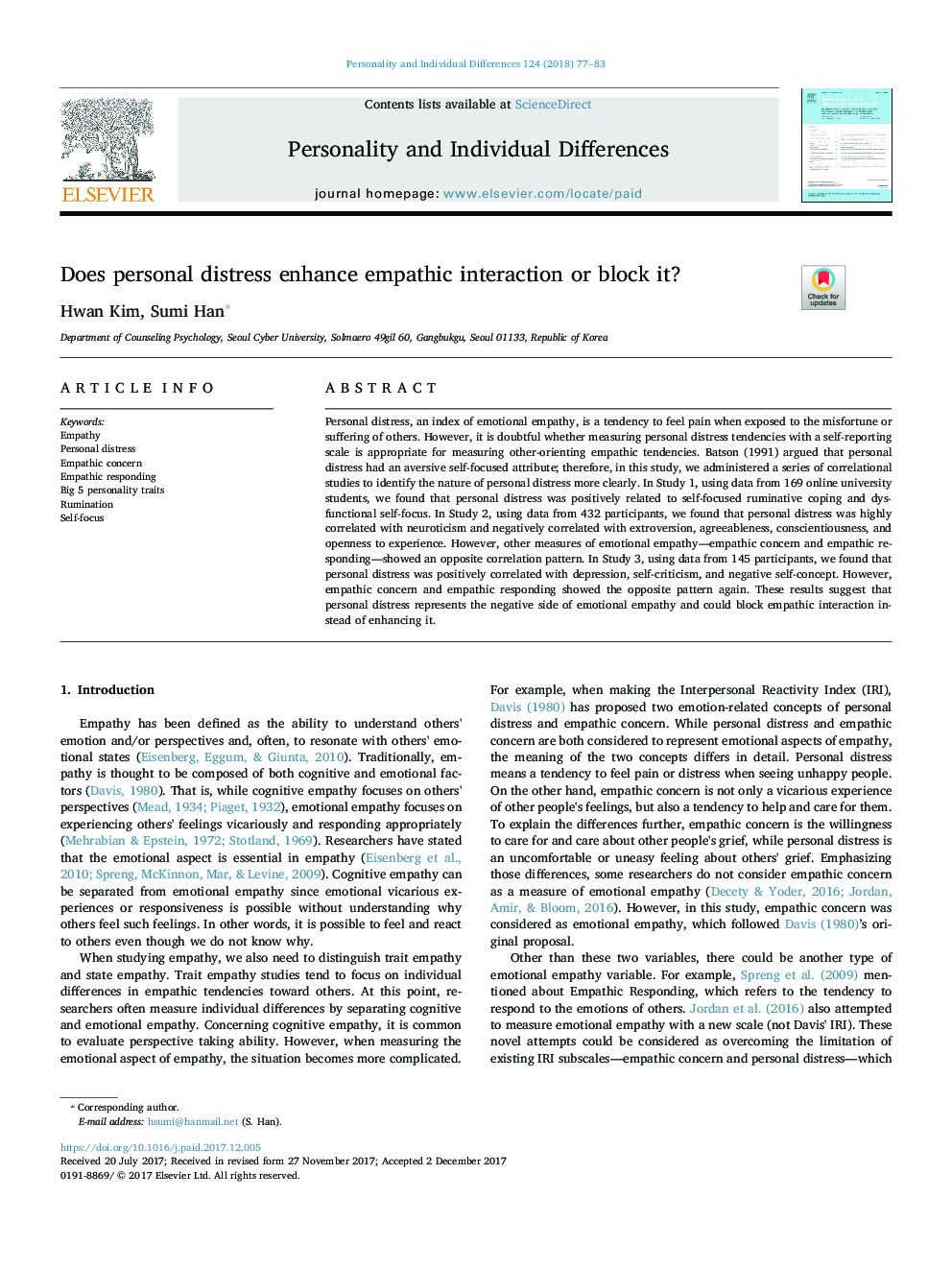| Article ID | Journal | Published Year | Pages | File Type |
|---|---|---|---|---|
| 7249080 | Personality and Individual Differences | 2018 | 7 Pages |
Abstract
Personal distress, an index of emotional empathy, is a tendency to feel pain when exposed to the misfortune or suffering of others. However, it is doubtful whether measuring personal distress tendencies with a self-reporting scale is appropriate for measuring other-orienting empathic tendencies. Batson (1991) argued that personal distress had an aversive self-focused attribute; therefore, in this study, we administered a series of correlational studies to identify the nature of personal distress more clearly. In Study 1, using data from 169 online university students, we found that personal distress was positively related to self-focused ruminative coping and dysfunctional self-focus. In Study 2, using data from 432 participants, we found that personal distress was highly correlated with neuroticism and negatively correlated with extroversion, agreeableness, conscientiousness, and openness to experience. However, other measures of emotional empathy-empathic concern and empathic responding-showed an opposite correlation pattern. In Study 3, using data from 145 participants, we found that personal distress was positively correlated with depression, self-criticism, and negative self-concept. However, empathic concern and empathic responding showed the opposite pattern again. These results suggest that personal distress represents the negative side of emotional empathy and could block empathic interaction instead of enhancing it.
Related Topics
Life Sciences
Neuroscience
Behavioral Neuroscience
Authors
Hwan Kim, Sumi Han,
